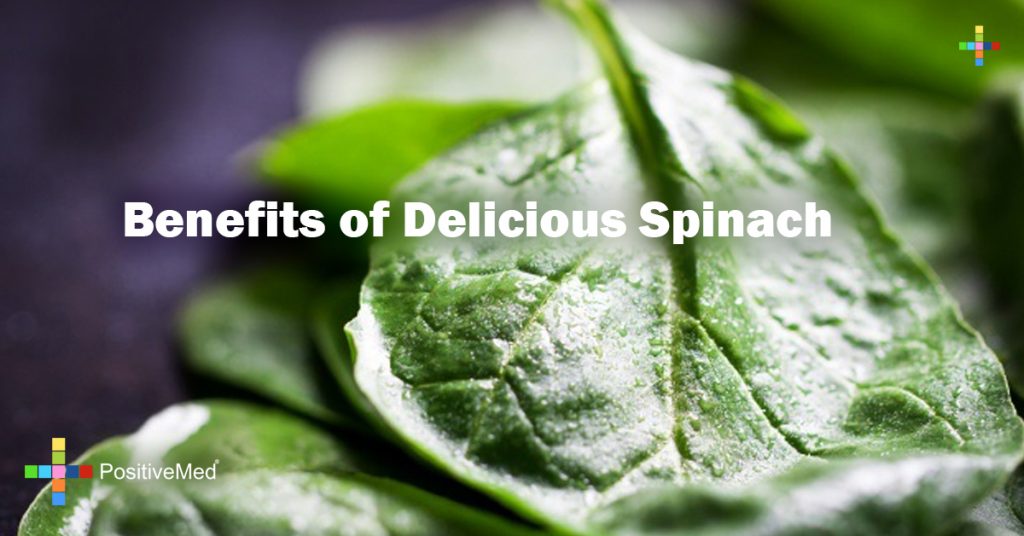
Leafy greens like spinach provide more nutrients than any other food when compared calorie for calorie. Spinach is an edible flowering plant in the family of Amaranthaceae. It is native to central and southwestern Asia. The benefits of spinach are many and varied.
- Nutrient-dense food.
Spinach is a low-calorie food yet very high in vitamins, minerals and other phytonutrients. Its packed with good-for-you nutrients, such as Vitamin K, vitamin A, magnesium, folate, its good source of protein, phosphorus, vitamin E-c-B3-B6 and potassium, among others.
- Versatile food
Raw, lightly cooked or even in a smoothie, you can eat it anyway you like.
- Readily available
You can find it all over the world and all year round.

- Antioxidants
Spinach is loaded with flavonoids that protect the body from free radicals.
- Heart healthy food
Outstanding source of vitamin C and A which work to keep cholesterol from oxidizing, in addition folate and magnesium are good for a healthy cardiovascular system.
- Gastrointestinal health

The beta-carotene works to protect the cells of the body’s colon from the harmful effects of free radicals.
- Anti-inflammatory properties
Spinach helps prevent arthritis, osteoporosis, migraines, headaches and asthma.
- Keeps your brain young
The consumption of green leafy vegetables may slow the age-related decline in brain function.
- Protective against eye diseases
Lutein is a carotenoid, which protects against age-related changes and macular degeneration.
- Excellent source of iron
The mineral iron is particularly important for menstruating woman and growing children and adolescents. Also important for those with anemia.







